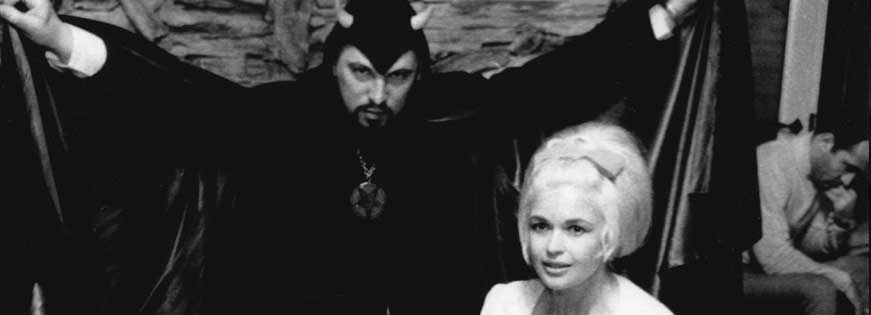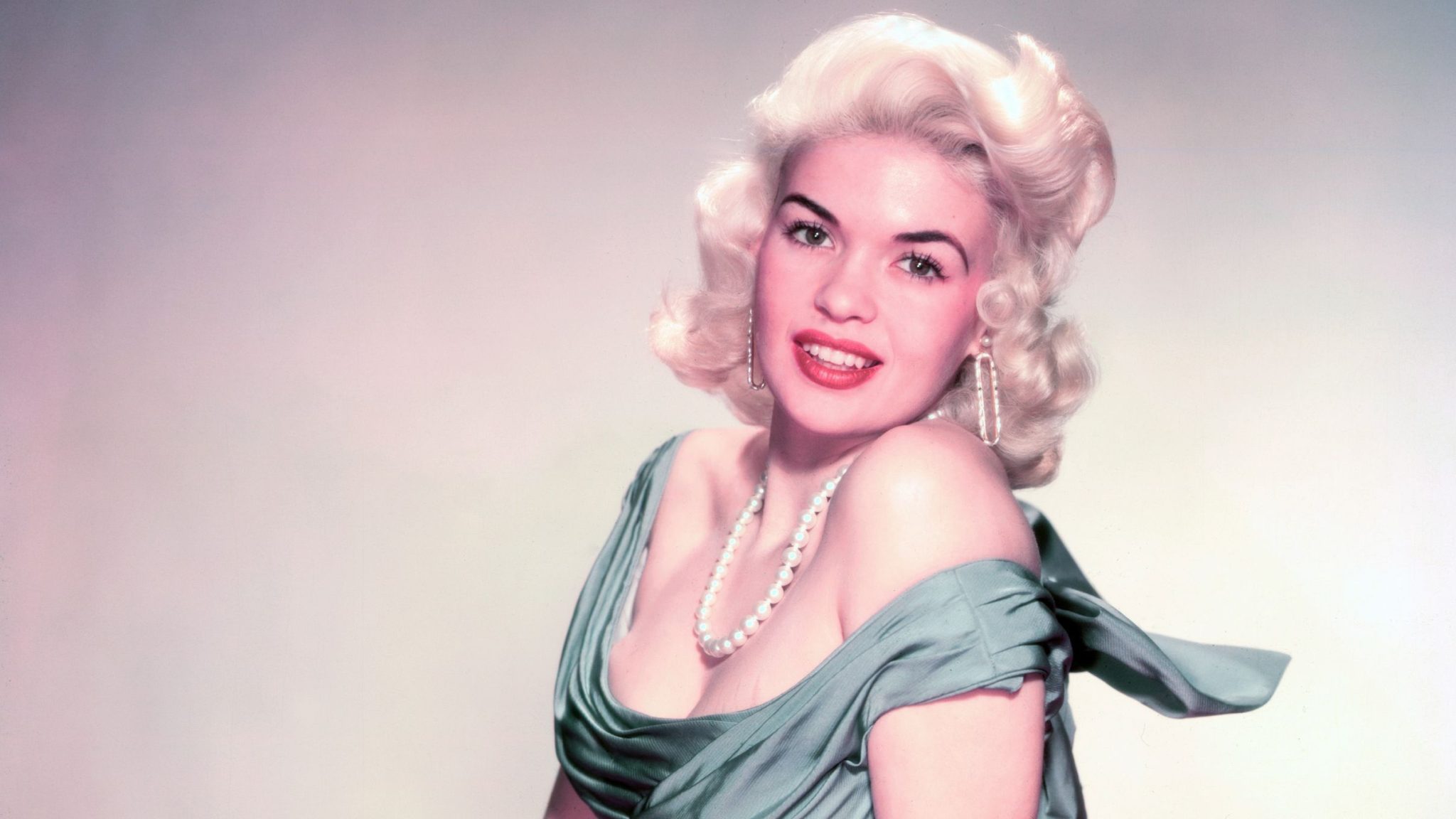
If you ever caught up with Room 237 – a documentary film about the varying levels of mania which afflict some fans of The Shining – then you will already have encountered producers P. David Ebersole and Todd Hughes. Room 237 is a very diverting film, it is true, though the chief diversion comes purely from the insane theories being propagated at length, rather than anything special being done with the framework. Ebersole and Hughes have worked on several documentaries since that time, with no real defining rationale behind any of them, but on this occasion their scattergun range of interests has brought them to the life and death of actress Jayne Mansfield, with a special emphasis on circumstances leading up to her very early demise at the age of 34. And, whilst there are entertaining and diverting moments to be had, these mostly derive from seeing and hearing Jayne herself: otherwise, there are some baffling decisions made here, which cast a pall over what could have been.
As the title suggests, after some time establishing just what propelled Jayne to stardom, the documentary focuses mainly on two years in her life – though not in a necessarily very linear way, and the film moves around its subject matter fairly loosely, digressing regularly. There is a diverse array of talking heads at hand, from contemporaries of Jayne’s to film critics and authors, none of whom were known to me. Amongst the contemporaries and fans were John Waters, Kenneth Anger and Mamie Van Doren; these were by far the most interesting contributors, with Waters in particular pitching it just right, on the right side of droll and yet clearly someone with a deep interest in Jayne Mansfield (he states that his star Divine was intended as a blend of Mansfield and Godzilla). It was a little frustrating that we didn’t hear more from him – and the same goes for Anger, a man who literally wrote the book on Hollywood decadence and personally knew Anton LaVey, whose erstwhile association with Jayne and the rumour mill surrounding it comprises a large share of this film. The selection of film academics made for an interesting choice, given that they said very little which seemed to relate to their academic backgrounds or specialisms (for instance, if someone gives their credentials as specialising in queer and feminist theory, you would anticipate they would perhaps say something about that, but they did nothing of the sort.)

I imagine that, had you no idea of Jayne Mansfield’s friendship with Church of Satan founder LaVey, then there would be material here which surprised you. Jayne did strike up a relationship with him – as the documentary fairly points out, there was a genuine link between them in that both of them enjoyed courting controversy – but as Waters calmly suggests, just ahead of the film edging towards giving credence to claims of Jayne’s occult leanings anyway, it’s hardly likely that she was ever a practitioner. Still, this doesn’t prevent the film from working through the rest of the rumours which persist; that LaVey and Jayne’s boyfriend Sam Brody disliked each other; that Brody resented LaVey’s influence on Jayne and openly sneered at their relationship; that, on a visit to LaVey’s home and Church of Satan HQ, the ‘Black House’, Brody made the mistake of lighting a skull candle, thus drawing down a Satanic curse on his head. LaVey, the film alleges, warned Jayne to stay away from Brody after this point but she stuck with him, soon thereafter dying alongside him in a car accident in New Orleans. As a raconteur, LaVey tells this story rather better in his biography; nonetheless, the film openly admits its love of ‘rumour and hearsay’, and true to its word, it devotes a great deal of time to just that.
The overall feel of this film is rather unbalanced. In its devotion to an attempt at 60s aesthetics and a kind of stab at ‘high gloss lowbrow’, it rather treats what happened to Jayne – a woman who died far too young in a horrific way after a couple of years of declining fortunes and wellbeing – as something trite, not tragic. For example, the animated sequence used to retell the events surrounding Jayne’s son getting mauled almost to death by a lion turns the whole incident into a tone-deaf interlude. But that is by far and away not the biggest crime here. The inclusion of a bunch of university students doing amateur dramatics, all in blonde wigs, singing and dancing was spectacularly ill-advised and, well, looks and sounds dreadful. I’d go so far as to say it’s insulting, the worst kind of filler possible. Had this been dropped (and I cannot fathom any editor who would leave it in) and had more footage of Jayne herself, who comes across as charming and clever, been added, then this would be a very different review. As it stands, Mansfield 66/67 is frequently wrongheaded and nailing its colours to the mast in terms of a devotion to hearsay doesn’t mean it can do anything and go anywhere. There are a few moments of promise and some enjoyable content, but overall, this is not the documentary I would have hoped for: I hope it gets made one day.
Mansfield 66/67 is available via Amazon Prime and the usual channels.
